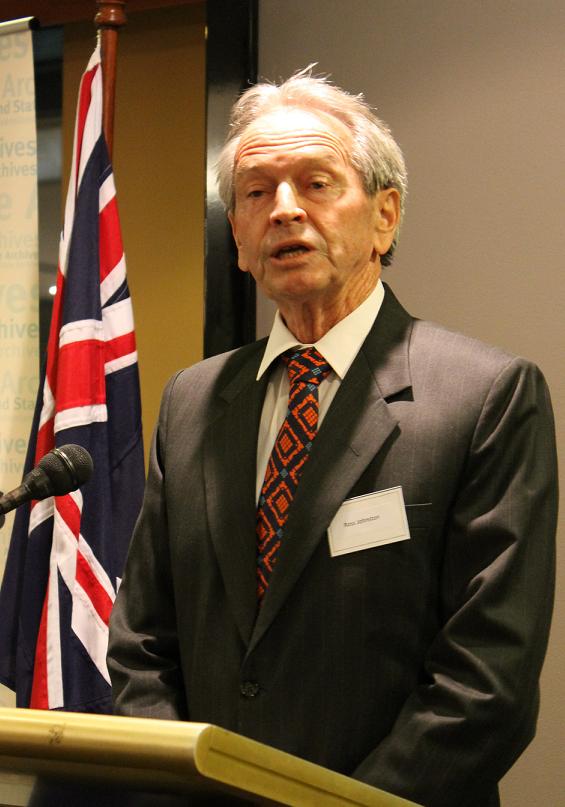On Becoming a Historian
by Ross Johnston, Winner of the 2012 John Douglas Kerr Medal of Distinction
‘I want you to cast your mind back to 1956, end January/early February. I have a clear picture, of little Rossie Johnston, standing wide-eyed, amazed, bedazzled, bemused, confused – as he surveyed his surrounds, the Great Court of The University of Sydney, that massive, magnificent, overwhelming Gothic pile. It certainly overwhelmed him; he was but sixteen year, four months old – about to start out on his career, on his life. The intention was to be a lawyer, since he had won an Arts/Law scholarship. His older brother Val said: ‘we need a lawyer in the family’. I am not sure why – although there has been a tradition among the Johnstons, a Lowland Scottish clan, living on the Border with England, of cattle-stealing (rustling). Our mob, probably trouble-makers, had been sent some centuries ago to Ireland – ‘to civilise the Irish’ – ending up on border-lands (County Fermanagh, today on the border of Northern Ireland and Eire). When the going got tough, as a result of the Great Famine in the 1840s, my forebears emigrated to Australia, and ended up in border-lands, again – in ‘Queensland Irredenta’, the upper Clarence basin (part of the Northern Rivers of New South Wales). Cattle-stealing was not unknown in that area.

